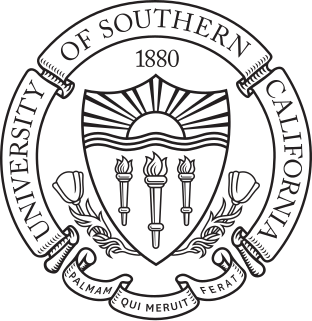| Proposition 62 | ||||||||||||||||||||||
|---|---|---|---|---|---|---|---|---|---|---|---|---|---|---|---|---|---|---|---|---|---|---|
| Repeal of Death Penalty | ||||||||||||||||||||||
| ||||||||||||||||||||||
| Source: California Secretary of State [1] | ||||||||||||||||||||||
Proposition 62 was a California ballot proposition on the November 8, 2016, ballot that would have repealed the death penalty and replaced it with life imprisonment and forced labor without possibility of parole. It would have applied retroactively to existing death sentences and increased the portion of life inmates' wages that may be applied to victim restitution. [2]

In California, a ballot proposition can be a referendum or an initiative measure that is submitted to the electorate for a direct decision or direct vote. If passed, it can alter one or more of the articles of the Constitution of California, one or more of the 29 California Codes, or another law in the California Statutes by clarifying current or adding statute(s) or removing current statute(s).
Capital punishment, also known as the death penalty, is a government-sanctioned practice whereby a person is killed by the state as a punishment for a crime. The sentence that someone be punished in such a manner is referred to as a death sentence, whereas the act of carrying out the sentence is known as an execution. Crimes that are punishable by death are known as capital crimes or capital offences, and they commonly include offences such as murder, mass murder, terrorism, treason, espionage, offenses against the State, such as attempting to overthrow government, piracy, drug trafficking, war crimes, crimes against humanity and genocide, but may include a wide range of offences depending on a country. Etymologically, the term capital in this context alluded to execution by beheading.
Life imprisonment is any sentence of imprisonment for a crime under which convicted persons are to remain in prison either for the rest of their natural life or until paroled. Crimes for which, in some countries, a person could receive this sentence include murder, attempted murder, conspiracy to commit murder, blasphemy, apostasy, terrorism, severe child abuse, rape, child rape, espionage, treason, high treason, drug dealing, drug trafficking, drug possession, human trafficking, severe cases of fraud, severe cases of financial crimes, aggravated criminal damage in English law, and aggravated cases of arson, kidnapping, burglary, or robbery which result in death or grievous bodily harm, piracy, aircraft hijacking, and in certain cases genocide, ethnic cleansing, crimes against humanity, certain war crimes or any three felonies in case of three strikes law. Life imprisonment can also be imposed, in certain countries, for traffic offenses causing death. The life sentence does not exist in all countries, and Portugal was the first to abolish life imprisonment, in 1884.
Contents
Proposition 62 was rejected by voters in the November general election, with only 46.9% voting to end executions. [3] Proposition 66 was approved by voters in the same election, with 51.1% voting to speed up executions. [3] If voters had passed both Proposition 62 and Proposition 66, then the measure with the most "Yes" votes would have taken effect. [4]
Proposition 62 was estimated to reduce state spending by $150 million a year. [4] Proponents spent $8.9 million fighting for Proposition 62, with the top contribution being $1.5 million from Stanford University professor Nick McKeown. [4] Other top contributing proponents include Tom Steyer, Reed Hastings, John Doerr, and Paul Graham. [4] The measure was supported by the editorial boards of the Los Angeles Times , [5] the San Francisco Chronicle , [6] and The Sacramento Bee . [7] Opponents spent $4.4 million fighting against Proposition 62, with the top contribution being $498,303 from the California prison guards’ union. [4] Other top contributing opponents include the California Highway Patrolmen’s union, and the LAPD police union. [4]

Leland Stanford Junior University is an American private research university in Stanford, California. Stanford is known for its academic strength, wealth, proximity to Silicon Valley, and ranking as one of the world's top universities.

Nicholas (Nick) William McKeown FREng, is a professor in the Electrical Engineering and Computer Science departments at Stanford University. He has also started technology companies in Silicon Valley.

Thomas Fahr Steyer is an American billionaire hedge fund manager, philanthropist, environmentalist, liberal activist, and fundraiser.
A September 2016 poll from USC Dornsife / Los Angeles Times showed 40% percent of registered voters in favor of Proposition 62, 51% opposed, and 9% unknown. [8]

The University of Southern California is a private research university in Los Angeles, California. Founded in 1880, it is the oldest private research university in California. For the 2018–19 academic year, there were 20,000 students enrolled in four-year undergraduate programs. USC also has 27,500 graduate and professional students in a number of different programs, including business, law, engineering, social work, and medicine.

The Los Angeles Times is a daily newspaper which has been published in Los Angeles, California, since 1881. It has the fourth-largest circulation among United States newspapers, and is the largest U.S. newspaper not headquartered on the East Coast. The paper is known for its coverage of issues particularly salient to the U.S. West Coast, such as immigration trends and natural disasters. It has won more than 40 Pulitzer Prizes for its coverage of these and other issues. As of June 18, 2018, ownership of the paper is controlled by Patrick Soon-Shiong, and the executive editor is Norman Pearlstine.

















